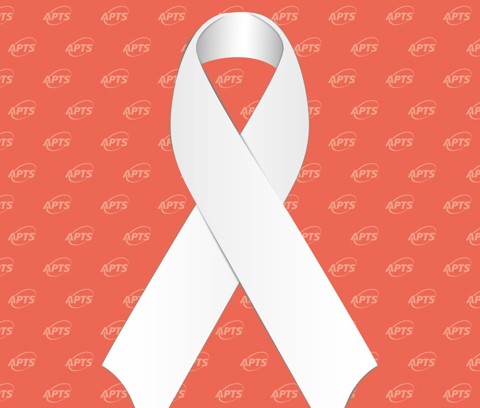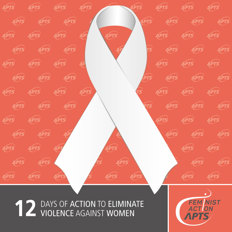
The United Nations General Assembly has declared November 25 to be the International Day for the Elimination of Violence Against Women, and a call has been made for governments and organizations to take action in order to raise public awareness of this social evil that puts women’s lives, safety, and hopes for equality at risk. The campaign in Québec will reach its peak on December 6, National Day of Remembrance and Action to End Violence Against Women, commemorating the femicides carried out at Montréal’s École Polytechnique in 1989 and the death of 14 young women.
Intimate partner violence and the workplace: yes, there may be something you can do
The APTS wants its members to be aware of actions they can take to support coworkers who may be victims of intimate partner violence.
Acting in solidarity, here are some of the things you can do:
- Make sure any information communicated by the victim remains confidential.
- Don’t interpret the facts.
- Believe the person.
- Provide reassurance.
- Let them make their own decisions; don’t act without their consent.
- Refer them to specialized resources.
- Refer them to their labour relations counsellor for help in dealing with the employer.
What can your employer do?

When an employer knows, or ought reasonably to know, that an employee is exposed to physical or psychological violence in the workplace (this includes spousal, family or sexual violence), the employer is required to take measures to protect the employee.
This obligation is spelled out in the Act respecting occupational health and safety, which means your employer can’t argue there’s nothing they can do about it or that intimate partner violence is a private matter.
For more information, see our brochure Show Your Solidarity: Intimate Partner Violence and the Workplace.
Download the white ribbon
From November 25 to December 6, we’re wearing a white ribbon on our social media.
Visioconference (paperwall)



